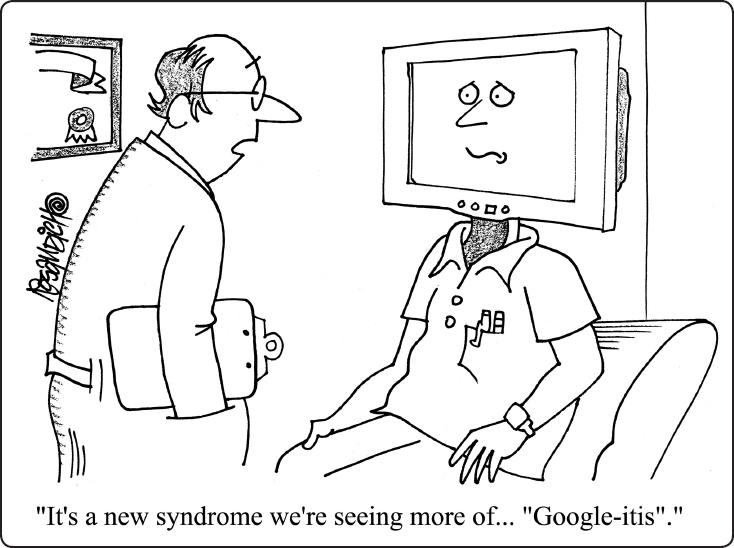Evaluating Sources
It’s easy to assume that huge amounts of available information automatically provide knowledge. Some students might at first be excited about receiving 20,800,000 hits from a Google search on political ethics, but shock takes hold when they realize that their discovery is utterly unsorted. They might respond by using only the first several hits, irrespective of quality. A more productive approach is to think critically about the usefulness of potential sources by measuring them against three important criteria: relevance, authority, and bias.
218

Google-itis Search engines such as Google have made finding immediate answers to any question easier than ever before. Be careful, though: Some Google hits may be authentic and valuable, but others may take you to advertisements or biased reports that don’t give you exactly the answer that you were looking for.
[Leave] [Close]